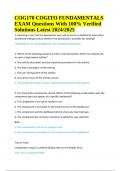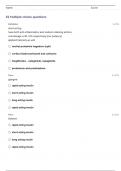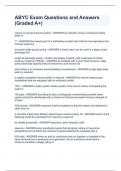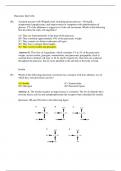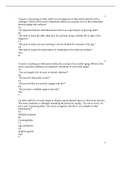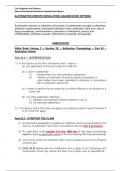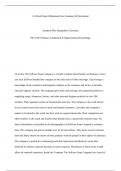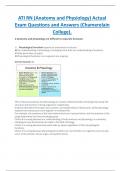Examen
COG170 COGITO FUNDAMENTALS EXAM Questions With Answers Latest 2024/2025 | 100% Verified.
- Cours
- Établissement
COG170 COGITO FUNDAMENTALS EXAM Questions With Answers Latest 2024/2025 | 100% Verified. Which of the following would you enter in the Parameters field of an activity link to open a Hyperspace activity? a. The activity descriptor and any required parameters for the activity. b. The menu descrip...
[Montrer plus]
